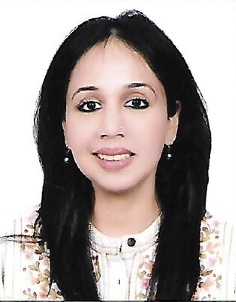Aug 11, 2019 | By Neha Bansal
Over the next few years the world will see the rise of a multipolar world order. A world where no one power will be dominant. Instead different regions will adopt their own approaches to governance, human rights, economic development and social systems.
At a point such as this, my hope is to discuss one aspect today-
India that has made a sharp change in its international development assistance role, moving from being a recipient of foreign aid to a donor to countries in Asia, Africa and the Middle East. Displaying its statesmanship by thinking as One collective Asia, India should consider supporting a country in its neighborhood- Pakistan’s development agenda.
If Asia is to take its proper place in this emerging world order, Asian countries will need to move beyond country to country politics and find its voice as one region. ‘Asia is One’ said Rabindranath Tagore in the early 90’s. ‘Asia is one’ said Singaporean Prime Minister Lee Kuan Yew. We are common in our socializing models; we are common in our Confucian model of putting the interests of the collective i.e. family, society before the interests of the individual and in that we are different to the West.
But alas in Asia’s we may have dangerously and erroneously prioritized competition rather than collaboration. In an era where the World seems to be looking East again, the same Post-Cold War opportunistic politics pursued by countries outside the region could play out benefitting these countries rather than those within Asia.
Q1. What is in India’s interest to support Pakistan’s development agenda?
Two countries that are on two opposite sides of the economic growth spectrum share their borders. Pakistan is one of the slowest growing countries in South Asia whilst India one of the fastest. The disparity is a continuous bed rock for conflict.
This trust deficit and huge disparity of institutional and governance capacity between countries is a leaking hole in the growth of the region and a missed opportunity.
Today even though the trade potential is there, it is several times more costly for a country in South Asia to trade with its neighbour than to trade with a faraway country like Brazil .
Politically too, we are strong as our weakest link. Our weakest link which happens to be Pakistan. A country that goes with its hands stretched for help to America, UK and the likes is an open invitation for foreign interference and influence in the region, not to mention an influence right at the doorstep of India.
Q2. India has extended its hand for dialogue and support but Pakistan continues to engage in cross border military aggression? It has not gotten over its Partition psyche.
Yes while this is true. Perhaps the more important question to ask is why. It would amount to intellectual laziness to only focus on one perspective of a country i.e. military aggression.
According to several reports, Pakistan a country in deficit spends much more on its military budget than even India. It is no unique thinking that the military in Pakistan must justify itself. This it does through cross border aggression keeping the wounds of partition always raw, giving the military constant relevance. Supporting Pakistan’s development agenda would imply giving another sector relevance too like infrastructure, industry- just like China and Taiwan have done despite their conflict.
Secondly, there are several factions in Pakistan that are keen to move out of this character, example parts of Sind and Baluchistan. We must find a way to engage with Pakistan’s different and emerging identities without seeing it as one homogenous enemy of the Indian state.
Q3. Pakistan has never proved itself as a worthwhile partner on any front?
The Indus water treaty signed in 1960’s is among the oldest and most successful water treaties in the world. In spite of conflicts and wars between the two countries the provisions of this treaty have held up. Thus benefiting thousands of lives of the two sides and once again showing the need to expand the scope of our engagement with Pakistan .i.e. in spheres of commerce, education etc. This can only be possible when the partner on the other side of the table is made capable enough for this level of engagement.
Conclusion of the meeting:
1. A follow up round- table on other aspects of ‘One Asia’ with increased participation, in the coming months.
2. Engagement and dialogue of CIRCW with a similar organization in Pakistan for track 2 discussions.
3. Outcomes of both the round table and track 2 organization to be considered for submission to Foreign Office, Government of India.
Social and Economic development expert for Asia, United Nations

Neha is a member of CIRCW. She is social and economic development expert for Asia having served the United Nations. She holds a Masters from Harvard University in addition to being a fellow at the Harvard Kennedy School of Government and international politics.